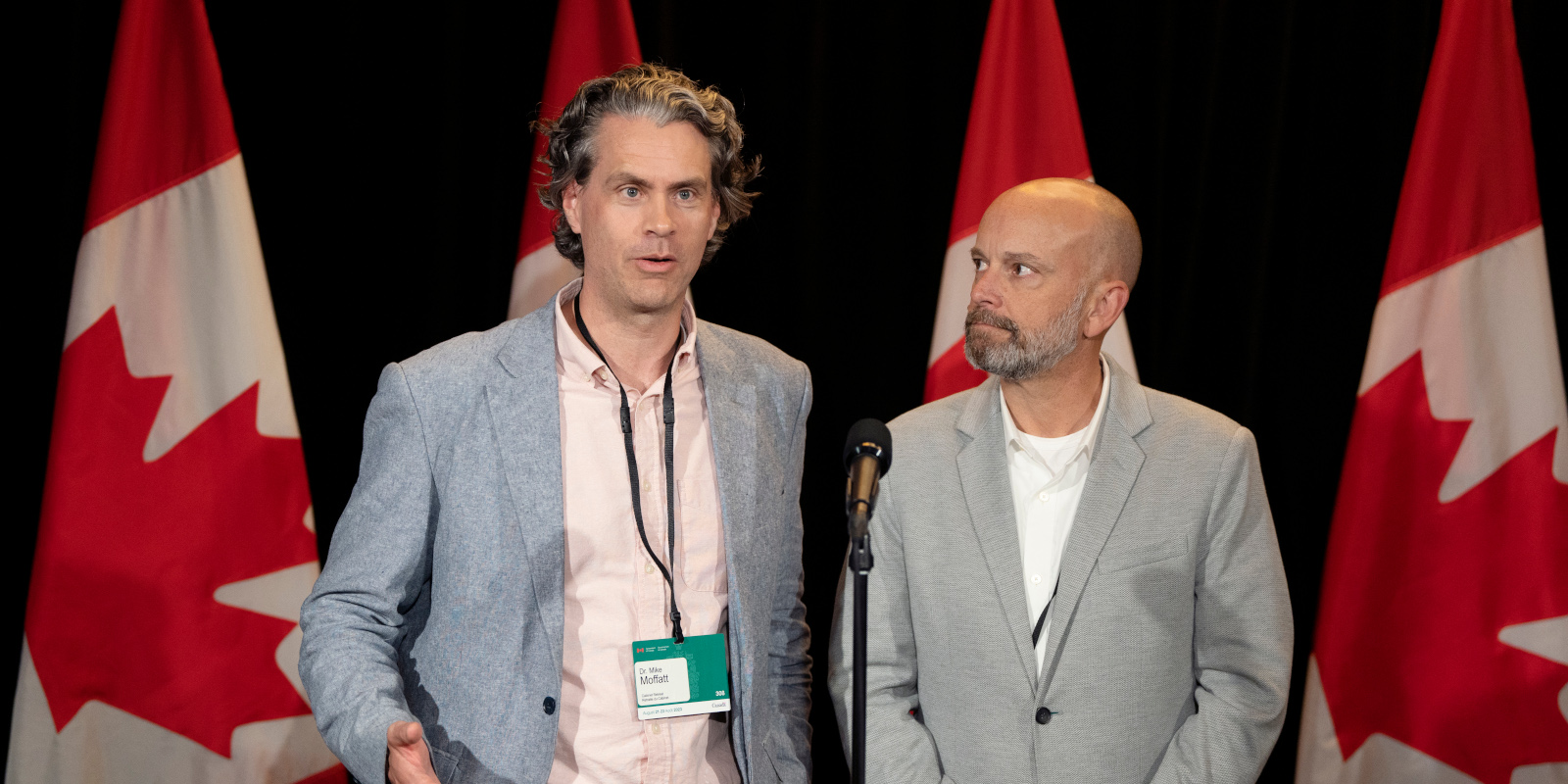Housing experts and affordability advocates presented a plan to Prime Minister Justin Trudeau’s cabinet during its summer retreat this week that outlined how the federal government can take decisive action to address Canada’s worsening affordability crisis.
Western University professor and economist Mike Moffatt and Tim Richter, president & CEO of the Canadian Alliance to End Homelessness, were the most high-profile experts asked to present a housing plan to the cabinet in Charlottetown.
Moffatt, earlier this week in an exclusive for The Hub that laid out his message to cabinet, wrote that a “wartime effort” from the federal government will be required to tackle the affordability crisis, and that it must begin without further delay.
“We should view this strategy as an investment, not a cost, as the economic opportunities are enormous,” wrote Moffatt. “The key to this industrial strategy working is speed. The federal government must avoid setting up new approvals processes and micromanaging the system.”
Following the conclusion of the retreat, Richter, in an interview with The Hub, says he is bullish on the prospects of a federal government plan to address the sharply declining affordability of owning or renting homes across Canada.
“I think the fact we were there is a pretty good indication that they’re receptive to our ideas,” says Richter.
It was reported following the cabinet retreat’s conclusion that the federal government still lacks a national housing strategy despite Richter and Moffatt’s presentation, leading to more criticism that the government is not serious about taking on the affordability crisis. However, Richter says it is unfair to have expected such a plan to be crafted in less than three days.
“Frankly, politicians at all levels have really been struggling to figure out what to do about the housing crisis,” says Richter. “This is a trillion-dollar problem, with a ton of complexity and they’re not going to whip together a plan in 72 hours. That said, I don’t think they have a lot of time and are going to have to put some new policy forward in the next month or two.”
While Richter could not fully divulge his conversations with cabinet, he says he is hopeful that the government will try to get more involved in alleviating the crisis.
“I can’t talk about the cabinet conversations directly, but I get the sense they are really seeing housing as a crisis they need to respond to quickly and with more ambition than they’ve shown to date,” says Richter.
Experts, analysts, and others routinely appear before televised parliamentary committees to testify on issues ranging from foreign electoral interference to social media regulation, but bringing in outside experts to a cabinet retreat to provide input into the housing issue specifically reinforces how salient it has become for this government.
Polling has suggested that affordability is top of mind for many Canadian voters, and other polls conducted in recent weeks have that displayed Trudeau’s Liberals are trailing behind the Conservatives by a wide margin.
Whether the government follows through on the discussed proposals is another matter. The cabinet retreat itself is private and subject to cabinet confidence which create a different dynamic than when experts testify before parliamentary committees. The biggest, according to J.J. McCullough, a Vancouver-based columnist and professional YouTuber, is that cabinet isn’t televised so there isn’t the same incentive for politicians to be performative.
“When you don’t have the cameras on you, you’re not scoring any sort of partisan points,” says McCullough. “No member of the public is able to engage with the performance one way or another, so I think it’s a reason to be positive about it.”
Many televised parliamentary committee sessions have devolved into abrasive back-and-forths between witnesses and the MPs, including McCullough’s testimony last year that was critical of the government’s push to regulate social media platforms like YouTube.

However, McCullough remains skeptical that the federal government will alter its approach to receiving testimony, even without any cameras.
“Are the politicians engaged in a good faith effort to serve a broad range of opinions that may exist on any issue, or are they carefully curating favourable experts who tell them what they want to hear?” asks McCullough. “And, when they go ahead and do what they were going to do anyway, they can say in a disingenuous way, ‘Oh, well, we surveyed the relevant experts and they all agree with us that this was a good thing to do.’”
Trudeau came under fire prior to the cabinet retreat after he stated that housing is not a primary federal responsibility and put the onus on the provinces instead. The federal government’s current efforts to alleviate the crisis, such as special, tax-free savings accounts for young people to put away money for a downpayment, have been called insufficient to meet the challenge.
Richter expects housing to play a major role in the federal government’s annual fall economic statement and says he will be “badgering” them if Ottawa does not stay in touch about a housing strategy.
“With every passing day more and more people are being pushed into homelessness,” says Richter. “As we get near the end of the month and closer to rent being due, I’m kept awake at night worrying about those people and the thousands of people languishing in shelters or on the street. The government needs to feel that same urgency.”
Recommended for You

The Notebook by Theo Argitis: Mark Carney’s first major tests

The Weekly Wrap: Trudeau left Canada in terrible fiscal shape—and now Carney’s on clean-up duty

‘Another round of trying to pull capital from Canada’: The Roundtable on Trump’s latest tariff salvo

‘We knew something was coming’: Joseph Steinberg on how Trump is ramping up his latest tariff threats against Canada




